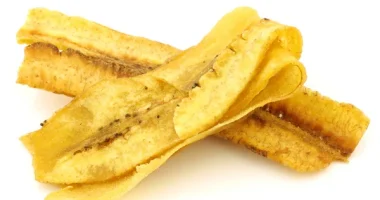Find out the “8 Foods To Avoid After Fibroid Removal” Fibroid removal, also known as myomectomy, is a surgical procedure to remove uterine fibroids.
There are different methods to perform a myomectomy, including laparoscopic, hysteroscopic, and open procedures. The choice of method depends on factors such as the size and location of the fibroids, the patient’s medical history, and the surgeon’s preference.
Before the surgery, patients may be asked to stop taking certain medications, such as aspirin, ibuprofen, naproxen, Clopidogrel, and warfarin, and discuss any medical conditions or bleeding disorders they may have.
On the day of the surgery, patients are usually asked not to eat or drink anything after midnight and take the prescribed medications with a small sip of water.
During the procedure, laparoscopic myomectomy involves making tiny incisions in the lower abdomen and using a camera and surgical instruments to remove the fibroids.
Hysteroscopic myomectomy involves inserting a long, thin tube into the uterus through the vagina and cervix to remove the fibroids. After the surgery, most patients can go home the same day, but in some cases, an overnight stay may be required.
Recovery time varies depending on the type of procedure and the individual’s healing process. Most patients are fully recovered in one to two weeks after a laparoscopic procedure, while recovery after an open myomectomy may take up to six weeks. Patients should avoid lifting heavy objects, resuming sexual intercourse, and returning to work until their doctor advises it is safe. Full recovery takes about four to six weeks to allow for internal healing.
8 Foods To Avoid After Fibroid Removal
After undergoing a fibroid removal surgery, it is essential to follow a specific diet to aid in your recovery and prevent the growth of new fibroids. Here are eight foods to avoid after fibroid removal surgery:
- Dairy products: Foods high in dairy content often contain artificially added hormones that can negatively impact your hormone balance and trigger fibroid growth. Opt for organic or hormone-free dairy products instead.
- Red meat: Eating red meat can worsen fibroids, as it is high in artificially added hormones and estrogen content, which can cause hormonal imbalances and trigger fibroid growth. Instead, choose lean cuts of meat.
- Saturated fats: Saturated fats can raise estrogen levels, leading to new fibroid growth and faster growth of existing fibroids. Avoid foods high in saturated fats, such as processed snacks, sausages, egg yolks, and bacon.
- High salt intake: A high salt diet can be harmful to your overall health and damage your liver, which helps break down foods and flush out toxins and excess hormones. Avoid high salt foods like canned soups, baked beans, and salted chips.
- Caffeinated drinks: Beverages high in caffeine can cause a sharp rise in hormone levels, which can contribute to tumor growth. Avoid caffeinated sodas, colas, excessive tea, and chocolates containing caffeine.
- Fast food and packaged food: These foods are often high in fat, which can contribute to weight gain and hormone imbalances. Avoid fast food, packaged food like chips, and food from street vendors.
- Red meat and dairy: These foods contain high levels of estrogen, which can affect hormone levels and contribute to fibroid growth. Avoid beef, pork, lamb, deli meats/processed meats, and dairy products.
- Foods high in refined sugar, sodium, and high in fat: Processed foods and fast food are high in fat, which can contribute to weight gain and hormone imbalances. Avoid energy drinks, soda, sugary lattes, cocktails, cereal, pastries, and alcohol.
Note: After fibroid removal surgery, it is generally recommended to avoid alcohol for at least 2 weeks to support your healing process and prevent complications. Alcohol can interfere with the body’s ability to heal by thinning the blood, which may make it difficult for incisions to clot and increase the risk of excessive bleeding during and after surgery. It is crucial to follow your surgeon’s specific post-operative instructions regarding alcohol consumption. Depending on the type of surgery and individual circumstances, the timeframe for avoiding alcohol may vary. Some patients may be advised to abstain from alcohol for a longer period based on their recovery progress and overall health condition.
What Are Some Foods To Eat After Fibroid Removal Surgery?
After fibroid removal surgery, it is essential to focus on a diet that promotes healing and supports your recovery. Here are some foods to eat after fibroid removal surgery:
Vegetables: Vegetables are rich in essential vitamins and minerals that support healing. They provide nutrients like fiber, iron, magnesium, potassium, and calcium, which are crucial for recovery.
Lean meats and seafood: Protein is essential for healing after surgery. Lean meats and seafood are high in protein, which helps repair muscles and tissues damaged during surgery.
- Berries: Berries are packed with antioxidants and vitamins that aid in the healing process. They provide essential nutrients to support recovery after surgery.
- Whole grains: Whole grains are a good source of fiber, which can help prevent constipation post-surgery. Opt for whole grain options like oatmeal, brown rice, and whole grain bread to support your recovery.
- Fruits: Fruits are rich in vitamins and minerals that promote healing. They provide essential nutrients to support your overall health during the recovery period.
- Nuts: Nuts are a good source of healthy fats and protein, which can aid in the healing process. They provide essential nutrients to support recovery after surgery.
- Eggs: Eggs are a good source of protein and other essential nutrients that support healing. They can help repair muscle damage and speed up wound healing post-surgery.
- Yogurt: Yogurt is a good source of protein, calcium, and vitamin D, which are beneficial for recovery after surgery. It provides essential nutrients to support healing.
By incorporating these foods into your diet after fibroid removal surgery, you can promote healing, support your recovery process, and ensure optimal nutrition for a smooth post-operative period.
ALSO READ: 8 People Who Should Not Drink Beer And Why
References
- https://www.hopkinsmedicine.org/health/treatment-tests-and-therapies/myomectomy-hysteroscopic-laparoscopic-abdominal
- https://my.clevelandclinic.org/health/treatments/15448-myomectomy
- https://www.mayoclinic.org/tests-procedures/myomectomy/about/pac-20384710








